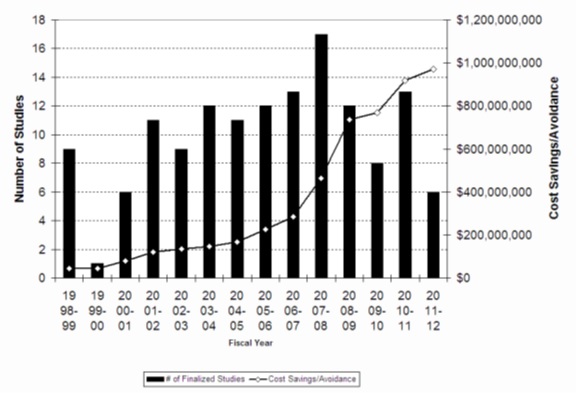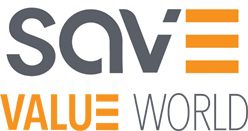By Mike Pearsall, P.Eng., CVS, CVM, FICE, FEC
As promised last issue I am going to provide an overview of the successful Value Engineering program at the Ministry of Transportation in Ontario, Canada.
What is in a name? My employer MTO recently celebrated its 100th anniversary, but our name has changed many times over those 100 years, for most of the time we were a Department of something transportation-related. Then in the early 1970’s we became first the Ministry of Transportation and Communications, then just the Ministry of Transportation. I came on board shortly after the “and Communications” was dropped from the name and the running joke at that time was the change happened because we didn’t do a very good job of communicating what we were doing. Hopefully that has changed in the ensuing 25 plus years.
MTO has had a formal VE program since 1998. There are a few slightly different versions of exactly when and how VE started at MTO, I was there at the time, so this is my version. In the mid-90’s facing economic pressures MTO went through a “re-engineering” exercise and as part of that looked at what many other jurisdictions were doing. A trial VE study was conducted on a planned freeway expansion project in 1996 under the tutelage of Lewis Zimmerman Associates (LZA). I became involved late in 1996 when a decision was made to put out an assignment for our first Module I training session and a second VE study and I was selected to work on the assignment terms with Ted Lane. LZA was also the successful service provider on this assignment. Subsequently, Robinson Stafford and Rude (RSR) were hired to assemble some initial guidelines for us, this was a very important step for any agency looking to establish a program and for the large part we still rely on the basis this set for our organization.
Our program has documented over $1B in savings and cost avoidance since 1998.

Unlike some other jurisdictions, there is no legislation making Value Engineering mandatory in Ontario. We rely on a policy memorandum within our agency, one VE program manager and a small but dedicated team of part-time volunteer coordinators representing our various regional offices. The Value Engineering program has grown and been strengthened using the simple concepts of building study demand by showing evidence of success, building confidence in VM, marketing and creating a culture. In the absence of legislation, a policy memorandum is critical, but not sufficient on its own, we have to regularly demonstrate and document our successes and the benefits of VE. This is accomplished various ways including annual reports and publishing articles.
In creating a culture and building confidence one of the important tools was staff training. In the early days, we focused on sending senior staff on Module I training, while this was necessary and somewhat effective we found it better in the long-run to train more entry-level staff with shorter sessions. We have developed an award-winning one-day course, which has been highly effective for training team members. VE coordinators and those highly interested in the program are subsequently sent to Module I and as needed Module II training. We also host occasional one-hour lunch and learn style information sessions. When it comes to training one-size does not fit all and we have found having a range of options to be quite effective.
As the program has grown we have branched out beyond capital engineering projects into business process and non-engineering areas with good success. We have also benefited from help and information sharing from various other DOT’s as we grew and established our program such as Caltrans and Virginia DOT. We welcome any DOT or transportation agency to contact us to exchange knowledge as we will gladly share our advice and lessons learned.
Until next the issue I would like to continue to encourage any transportation professional out there who would like to share their stories to contact me.
Oh, and before I forget. Back to that Department versus Ministry thing. Oddly enough, the change seems to have been largely politically motivated to pay homage to our British roots. At times I have found it confusing for some outsiders as when I tell them “I’m with the Ministry” they think I am some sort of religious leader. I will tell you that in reflection maybe that isn’t too far off as in the VE world I am quite often “preaching our gospel” and “spreading the word”.
When it comes to the Value Methodology I can definitely say that I am a believer and I have been since 20 years ago when I was first introduced to the concept. I will continue to keep spreading the word and so should you. Next issue – a case study.
